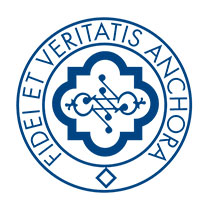The public competition for the award of a planned number of notarial locations is run every year by the Ministry of Justice. The contest is open to those completing their apprenticeship within 45 days after announcement of the competition, during which period applications must be lodged.
There is an age limit of 50 years and you can participate in the competition, with all the correct documentation, only three times, as for the judiciary.
The test is carried out at the national level in Rome and consists of two parts:
- a written examination;
- an oral examination, open only to those candidates who have passed the first exam.
The Commission
The examining commission (the same for the written examination and the oral examination) consists of:
a) a judge of the Supreme Court, with management responsibilities, who acts as chairman;
b) a magistrate eligible for appointment to the Supreme Court, acting as vice president;
c) seven judges qualified for the court of appeal;
d) six university professors, full or associate, who teach law subjects;
e) nine notaries who have at least ten years of service in the profession.
The Subjects of the Competition
The written examination consists of three theory and practical tests:
- a last will and testament;
- an inter vivos deed (civil law);
- an inter vivos deed (commercial law).
The tests must be assessed in their entirety by the examiners.
The oral examination focuses on three separate tests on the following groups of subjects:
a) civil, commercial and voluntary jurisdiction, particularly with regard to the legal institutions with which the office of a notary interacts;
b) provisions concerning notarial law and notarial archives;
c) provisions on indirect taxes.
At the end of the competition, the Ministry of Justice draws up the list of successful candidates in order.
Appointment and assignment of a practice
The winners of the competition are assigned by the Ministry of Justice, according to the results achieved, to the locations at which the new notaries are required to start a practice within three months (where they will be required to deposit and keep deeds, registers and notarial records). Contrary to what is often claimed, the notarial function, therefore, cannot be transmitted to one’s children and the proof of this is that 82.5% of notaries are not the child of a notary.
The assignment of the location and the appointment are effected by a decree of the Director General of Civil Justice within the Ministry and are published in the Official Gazette.
The Ministry of Justice provides the new notary with his seal and the device for digital signatures. For this reason, the notary must submit his signature together with the impression of the seal at the local Notarial Council, which will then enrol him.






